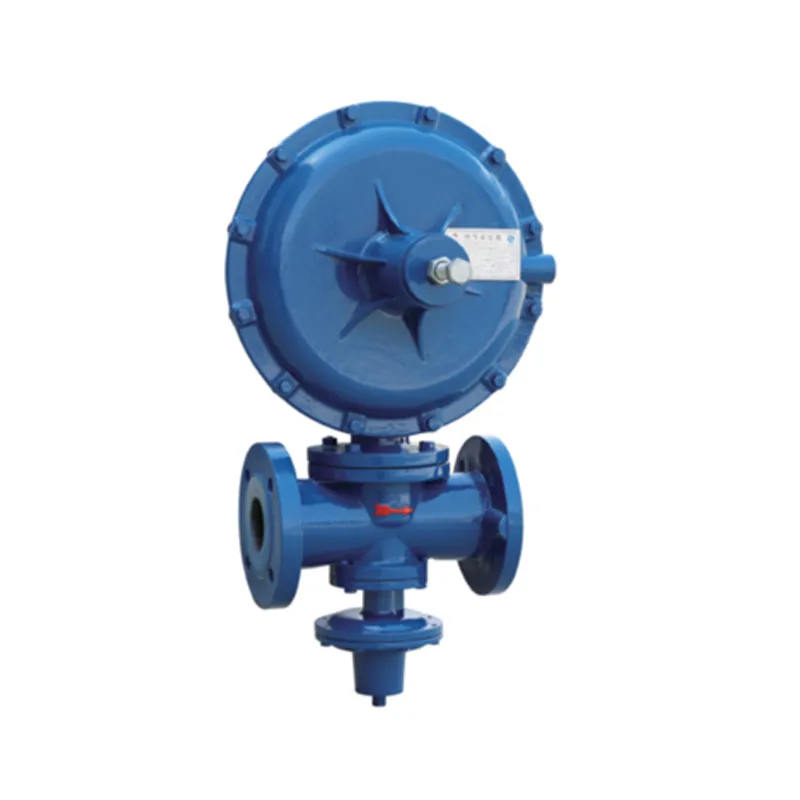
Nov . 24, 2024 23:53
Back to list
Closure Valve Function and Importance in Fluid Control Systems
The Importance of Shut-off Valves in Industrial Applications
Shut-off valves play a crucial role in various industrial applications, acting as the gatekeepers for the flow of fluids and gases. These valves are designed to completely stop the flow in a pipeline and are vital for both operational efficiency and safety. This article explores the importance, types, applications, and maintenance of shut-off valves in industrial settings.
Understanding Shut-off Valves
At its core, a shut-off valve is a device used to obstruct the flow of media through a pipe when it is closed. Unlike control valves, which regulate the flow or pressure of the pipeline, shut-off valves are generally used in a binary fashion either fully open or fully closed. This functionality is essential in scenarios where immediate cessation of flow is needed, whether for safety reasons or during maintenance operations.
Types of Shut-off Valves
Several types of shut-off valves exist, each serving different functions based on their design
1. Gate Valves These are primarily used in applications where a straight-line flow of fluid is needed. They are designed to fully open or close, providing minimal resistance to the flow.
2. Ball Valves Featuring a spherical disc (the ball), ball valves are known for their durability and ability to provide tight sealing. They can be operated quickly, making them ideal for applications that require fast shut-offs.
3. Globe Valves These valves are used for regulating flow rather than just stopping it. Their design offers better control of flow than gate valves, making them suitable for various applications.
.
5. Check Valves While not strictly shut-off valves, they prevent backflow in a system, ensuring that fluids only flow in the intended direction.
صمام الإغلاق

Applications in Industry
Shut-off valves are ubiquitous across industries, including water treatment, oil and gas, chemical manufacturing, and HVAC systems. In the water treatment sector, shut-off valves can isolate sections of a pipeline during maintenance or repair, protecting workers and ensuring the system’s integrity.
In the oil and gas industry, these valves are critical for safety. They are employed to stop the flow of oil or gas quickly in emergency situations, preventing catastrophic failures. Similarly, in chemical manufacturing, the precision and reliability of shut-off valves help in maintaining the desired conditions for chemical reactions, ensuring both product quality and worker safety.
Maintenance and Best Practices
Regular maintenance of shut-off valves is essential to ensure their reliability. Over time, wear and tear can affect their functionality, leading to leaks or operational failures. Here are some best practices for maintaining shut-off valves
- Routine Inspection Regularly check valves for leaks and proper operation. Inspect for rust or corrosion, especially in harsh environments.
- Testing Perform operational tests to ensure valves open and close effectively. This should be done at regular intervals or after any significant changes in the system.
- Replacement If a valve is found to be malfunctioning or leaking, it should be replaced immediately to prevent further issues.
- Documentation Keep detailed records of all maintenance activities, including inspections, repairs, and replacements. This information can be invaluable for future troubleshooting and maintenance planning.
Conclusion
Shut-off valves are an integral part of many industrial systems, ensuring safety, efficiency, and control over fluid dynamics. Understanding the different types of shut-off valves, their applications, and the importance of regular maintenance is essential for any industrial operation. By investing in quality shut-off valves and adhering to best practices in maintenance, industries can ensure the safe and efficient operation of their systems.
Next:
Latest news
-
Safety Valve Spring-Loaded Design Overpressure ProtectionNewsJul.25,2025
-
Precision Voltage Regulator AC5 Accuracy Grade PerformanceNewsJul.25,2025
-
Natural Gas Pressure Regulating Skid Industrial Pipeline ApplicationsNewsJul.25,2025
-
Natural Gas Filter Stainless Steel Mesh Element DesignNewsJul.25,2025
-
Gas Pressure Regulator Valve Direct-Acting Spring-Loaded DesignNewsJul.25,2025
-
Decompression Equipment Multi-Stage Heat Exchange System DesignNewsJul.25,2025

